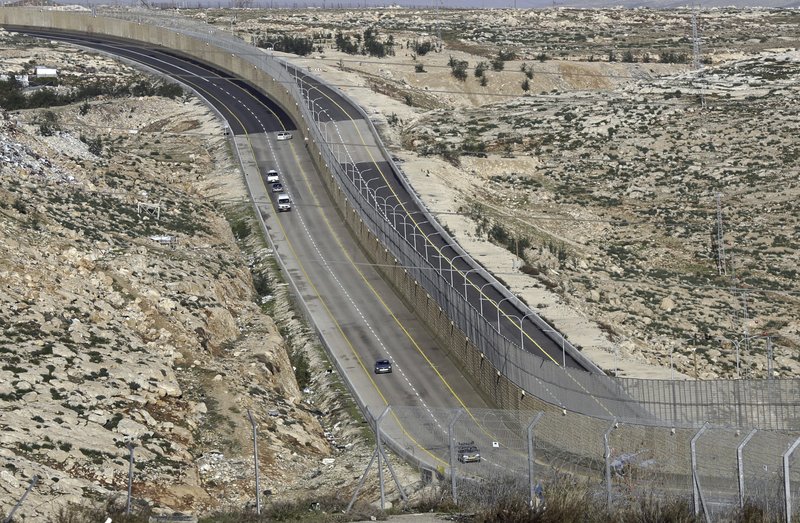JERUSALEM -- Israel's government went on a spending binge in its West Bank settlements after the election of President Donald Trump, according to official data obtained by The Associated Press.
Both supporters and detractors of the settlement movement have previously referred to a "Trump effect," claiming the president's friendlier approach to the settlements is leading to additional West Bank construction.
While the new Israeli figures obtained in a freedom-of-information request do not prove a direct connection, they indicate this process may already be underway, showing a 39% increase in 2017 spending on roads, schools and public buildings across the West Bank.
Hagit Ofran, a researcher with the anti-settlement monitoring group Peace Now, said it appears that Trump's election has emboldened Israel's pro-settler government.
"They are not shy anymore with what they are doing," she said. "They feel more free to do whatever they want."
Nabil Abu Rdeneh, spokesman for Palestinian President Mahmoud Abbas, offered even sharper criticism. "This proves that the current U.S. administration encouraged settlement activities," he said.
Since capturing the West Bank and east Jerusalem in the 1967 Middle East war, Israel has settled some 700,000 of its citizens in the two areas, which are considered occupied territory by most of the world. The international community has objected to Israel's moving people into settlements in those territories as both illegal and a deliberate obstacle to any future Palestinian state.
The Palestinians, who claim both the West Bank and east Jerusalem as parts of their future state, consider the settlements illegal land grabs. Scores of fast-growing settlements control strategic hilltops and areas of the West Bank, making it increasingly difficult to partition the territory.
For decades, the international community and the U.S. have expressed concern over the settlements while doing little to halt their construction. But since taking office, Trump, whose inner circle of Middle East advisers have long-standing ties to the settler movement, has taken a different approach. The White House has urged restraint but refrained from the blanket condemnations of its Republican and Democratic predecessors.
"The Trump administration is undoubtedly the most friendly American administration of all time," said Oded Revivi, the chief foreign envoy of the Yesha settlers' council. "In contrast, the [President Barack] Obama years were extremely hard for Israel. Now we are making up for lost ground."
The government statistics, released by Israel's Finance Ministry, showed Israeli spending in the West Bank in 2017, Trump's first year in office, rose to $459.8 million, from about $330 million in 2016.
The 2017 figures were the highest in the 15 years of data provided by the Finance Ministry, though spending also climbed in 2016. At the time, Obama, a vocal critic of the settlements, was a lame duck, and relations with Prime Minister Benjamin Netanyahu were cool.
In contrast, the lowest year of Israeli spending was 2009, when both Netanyahu and Obama took office, when it was about $212.4 million. The data included only the first half of 2018, so full-year comparisons were not available.
The ministry released the data after two years of requests from the AP, which received backing early this year from The Movement for Freedom of Information, a legal advocacy group that assists journalists.
The data provide a snapshot of Israel's priorities. The figures include spending on public construction projects, such as roads, schools, social centers, synagogues, shopping malls and industrial parks. They also include special development grants for local governments and mortgage subsidies.
The areas with the strongest growth in 2017 were in school construction, which jumped 68%, and road construction, which rose 54%.
A Section on 05/15/2019
